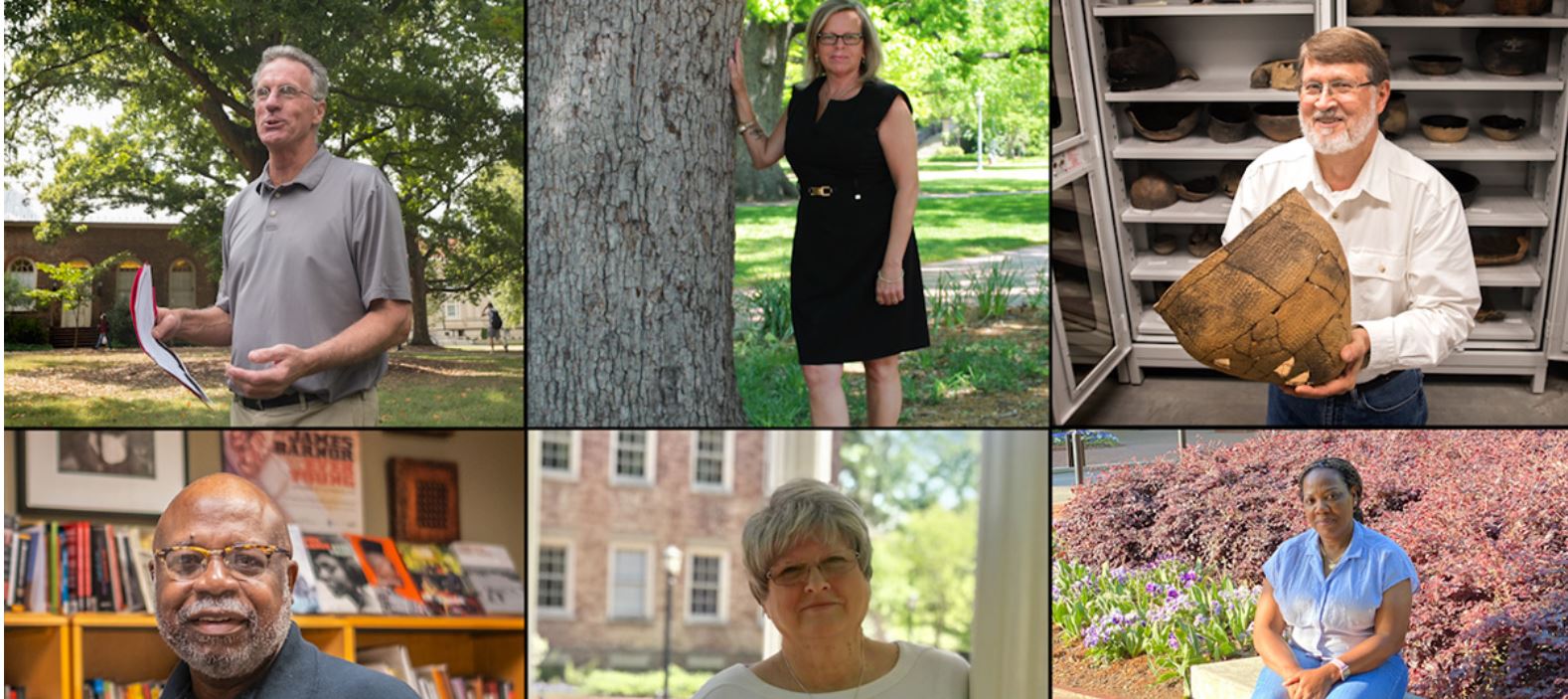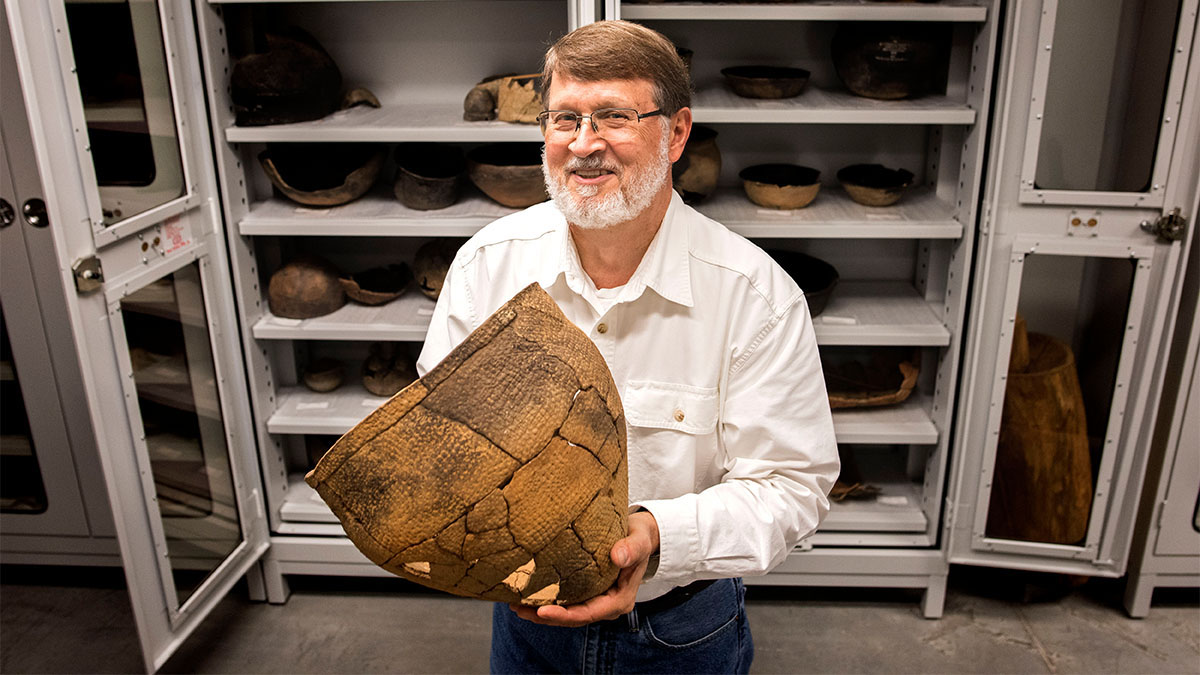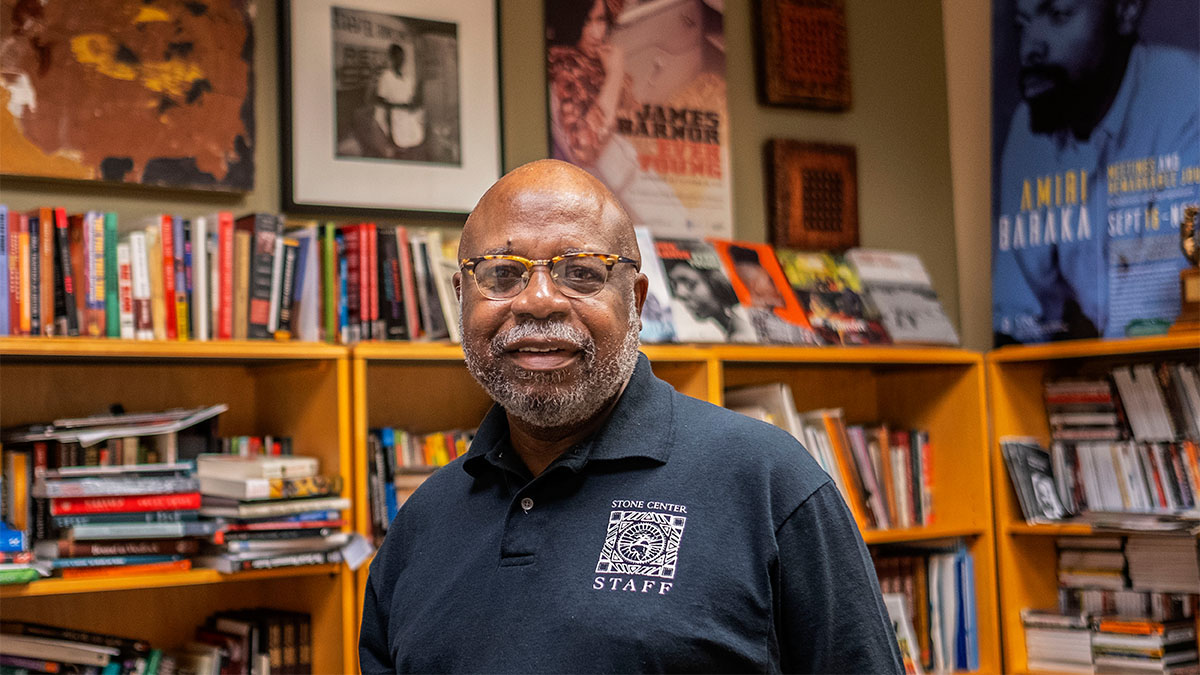The awards, given annually, recognize “unusual, meritorious or superior contributions” by University employees.
 Six Carolina employees have been selected to receive the 2020 C. Knox Massey Distinguished Service Award, one of the most prestigious distinctions for faculty and staff.
Six Carolina employees have been selected to receive the 2020 C. Knox Massey Distinguished Service Award, one of the most prestigious distinctions for faculty and staff.
The award, established in 1980 by the late C. Knox Massey ’59 of Durham, recognizes “unusual, meritorious or superior contributions” by University employees.
“Carolina is distinguished in the ways our teaching, research and service efforts benefit the people of our state,” Chancellor Kevin M. Guskiewicz said. “This work is made possible by the contributions of our extraordinary colleagues, who are the recipients of this year’s Massey Awards. I am grateful for their service and their dedication to our community.”
Selected through a campus-wide nomination process, Massey Award recipients receive a $10,000 stipend and an award citation.
This year’s recipients are:
- Tom Bythell, University forest manager, Facilities Services
- Julie Cannefax, student/business services coordinator, curriculum in toxicology, UNC School of Medicine
- Steve Davis, associate director and research archaeologist, Research Laboratories of Archaeology, College of Arts & Sciences
- Joseph Jordan, interim vice provost for academic and community engagement, director of the Sonja Haynes Stone Center for Black Culture and History, adjunct associate professor of African/African American and diaspora studies, College of Arts & Sciences
- Patti Wilkinson, business officer, Office of the Chancellor
- Carol Womack, housekeeper (Zone 23), Facilities Services/Housekeeping
Tom Bythell
Tom Bythell, arborist and University forest manager for 22 years, has championed the trees that contribute to Carolina’s heritage of beauty and dignity. His responsibilities include the landscapes on north and south campus, the ashes garden and display areas and the forest and trails in Carolina North. Though trees are his first love, he also serves as grounds liaison to capital projects and oversees pest management, grounds recycling, irrigation tracking, water conservation and snow removal. Bythell created the Tree Fund, using construction-impact fees to replace shade trees, and started the Tree Cycle Program to repurpose downed limbs and trees, including pens made on campus from the Davie Poplar.
Julie Cannefax
For more than 25 years Julie Cannefax has been the hub — and heart — of Carolina’s curriculum in toxicology. The unit’s only administrative staff member, she responds to detailed financial reports required by various granting agencies, and, as funding sources change for graduate students and post-docs, makes sure their salaries and stipends are paid on time. She manages complex lab placements, coordinates meetings and retreats, promotes seminars and — in a curriculum spread across campus and into the Research Triangle Park — serves as liaison for communication, implementation and support. During a transition of directorship for the toxicology professional science master’s degree program, Cannefax assumed additional responsibilities to work with outgoing and incoming directors.
Steve Davis

Steve Davis has perfected the art of exploring the science of archaeology. With the precision of sculptors, he and his students resurrect artifacts from our past. A 1974 graduate in anthropology, Davis has been at Carolina for 37 years and is widely regarded as the preeminent archaeological expert on North Carolina’s late pre-colonial and colonial native peoples. He is author and co-author of an extensive catalog of publications. As the public face of the Research Laboratories of Archaeology in the College of Arts & Sciences, he leads a hands-on field school to teach excavation and stewards millions of artifacts, thousands of photographs and hundreds of thousands of records in the North Carolina Archaeological Collection.
Joseph Jordan

Joseph Jordan is a scholar of national stature with 20 years of service to the University. As director of The Sonja Haynes Stone Center for Black Culture and History, he pioneered hundreds of academic initiatives, art exhibits, lectures, film screenings, discussions and standing programs. Two of his projects attracted an international audience: the six-day festival-conference, Telling Our Stories of Home, and the 1619 Collective Memory(ies) Symposium. In the classroom, Jordan has been called “a gem of a professor, with an adjunct appointment in the College of Arts & Sciences.” A champion of global outreach, he created opportunities for study in Colombia, Puerto Rico and Trinidad and a fellowship for study abroad that benefits students from underrepresented communities.
Patti Wilkinson
Patti Wilkinson began her Carolina career more than 35 years ago with UNC Health Care and since then has left her mark of excellence on positions in the UNC School of Government (formerly the Institute of Government), on two successful fundraising campaigns with University Development, and in collaborative support to the University Ombuds Office and the ConnectCarolina portal, among others. She joined the chancellor’s office as an executive assistant to the chief of staff and the Board of Trustees, and she now serves as business officer in the chancellor’s office. Her decades of institutional wisdom partner with an eagerness to learn and result in best practices.
Carol Womack
For more than 14 years and with professionalism, respect, dedication and excellence, Carol Womack has ensured that learning takes place in an atmosphere of cleanliness and order. More than a housekeeper, she is keeper of 18 houses of learning — classrooms and laboratories as varied as the Hanes Art Center and the Love House and Hutchins Forum. Womack’s workload includes high-traffic, high-volume spaces filled with students, faculty and administrators, and a building that houses confidential information and must be cleaned while staff are present. Her knowledge of housekeeping functions and standards, her attention to detail and her strict adherence to regulations and procedures make her a role model for others.
About the Massey Awards
Massey joined the University after a distinguished advertising career and worked for 25 years as a special assistant to then-Chancellor Carlyle Sitterson at a salary of $1 a year. He served as a University trustee for two decades and worked without pay to promote the statewide Good Health Campaign that led to the creation of a four-year medical school and teaching hospital at Carolina.
In 1984, he joined the families of his son, Knox Massey Jr., and daughter, Kay Massey Weatherspoon, to create the Massey-Weatherspoon fund. Income from the fund supports the Massey Awards, along with the Carolina Seminars that promote interdisciplinary thought, study, discussion and intellectual interchange on a variety of topics.
